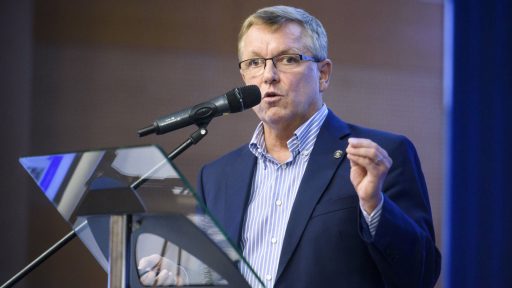- Home
- >
- Fundamental Analysis
- >
- Alexandre Lamfalussy: “We need to admit the euro was a mistake”

Alexandre Lamfalussy: "We need to admit the euro was a mistake"

The time has come to seek a way out of the euro trap. There is a harmful dogma that the euro was the “normal” next step towards unifying western Europe. But the common European currency was not normal at all, because almost none of the preconditions were met.
Two decades after the euro’s launch, most of the necessary pillars of a successful global currency — a common state, a budget covering at least 15-20 per cent of the eurozone’s total gross domestic product, a eurozone finance minister and a ministry to go with the post — are still missing.
We rarely admit the real roots of the ill-advised decision to create the common currency: it was a French snare. As Germany unified, François Mitterrand, then French president, feared growing German power and believed convincing the country to give up its Deutschemark would be enough to avoid a German Europe. The chancellor of the time, Helmut Kohl, gave in and considered the euro the ultimate price for a unified Germany.
They were both wrong. We now have a European Germany, not a German Europe, and the euro was unable to prevent the emergence of another strong German power.
But the Germans also fell into the trap of the “too good to be true” euro. The inclusion of southern European economies in the eurozone led to an exchange rate that was weak enough to allow the Germans to become the strongest global export machine in the EU. This windfall opportunity made them complacent. They neglected to upgrade their infrastructure or to invest enough in future industries. They missed the digital revolution, miscalculated the emergence of China and failed to build pan-European global companies. At the same time, companies like Allianz, Deutsche Bank and Bayer launched fruitless efforts to conquer Wall Street and the US.
Most eurozone countries fared better before the euro than they did with it. According to analysis by the Centre for European Policy, there have been few winners and many losers in the first two decades of the euro.
The common currency was not needed for European success stories before 1999 and the majority of eurozone member states did not benefit from it later. During the 2008 financial crisis and the 2011-12 eurozone economic crisis, most members were badly hit, having piled up huge government debts. There is no free lunch and cheap loans often cost a lot later.
Alexandre Lamfalussy, the Hungarian-born economist, was right to tell us that a common currency was needed to strengthen the bond between European powers and defend the EU against the Soviets. There was only one snag: the final decision to create the euro was made in Maastricht in 1992, as the Soviet Union collapsed. The raison d’être of the currency ended precisely as it was being born.
The time has come to wake up from this harmful and fruitless dream. A good starting point would be to recognise that the single currency is a trap for practically all its members — for different reasons — not a gold mine. EU states, both in and outside the eurozone, should admit that the euro has been a strategic error. The aim of building a global western currency that vies with the dollar was a challenge to the US. The European vision of a United States of Europe has resulted in both open and hidden US warfare against the EU and the eurozone in the past two decades.
We need to work out how to free ourselves from this trap. Europeans must give up their risky fantasies of creating a power that rivals the US. Members of the eurozone should be allowed to leave the currency zone in the coming decades, and those remaining should build a more sustainable global currency. Let’s celebrate the 30th anniversary in 2022 of the Maastricht treaty that spawned the euro by rewriting the pact.
Source: FT
 Trader Georgi Bozhidarov
Trader Georgi Bozhidarov Read more:
If you think, we can improve that section,
please comment. Your oppinion is imortant for us.











